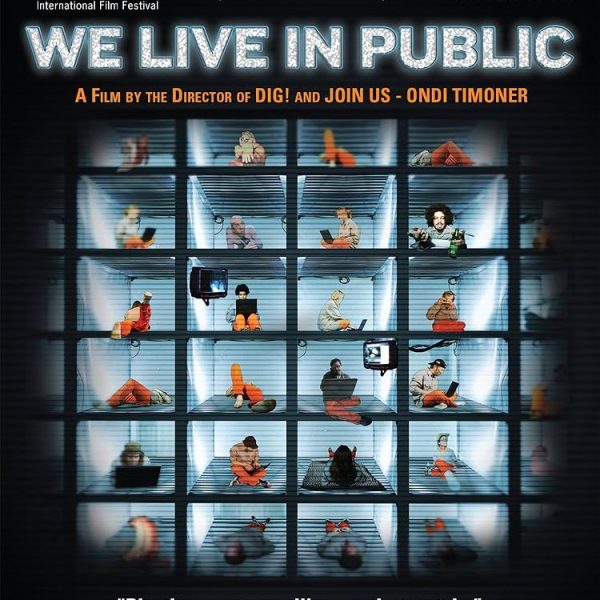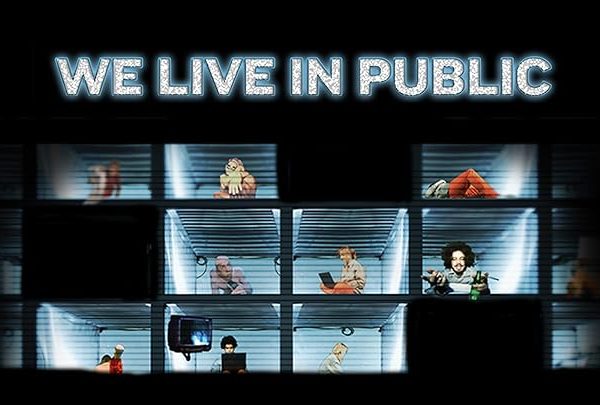We Live In Public
The movie We Live in Public tells the story of Josh Harris, an unknown Internet pioneer. Harris was a millionaire from the dot.com era and is the founder of Pseudo.com, the first streaming TV network on the Internet. After gaining popularity in the Silicon Valley community, Harris became interested in conducting controversial experiments on human behavior to explore the effects of media and technology on individual identity. Ondi Timoner drafted a project kickoff document to chronicle Harris’s significant business and life moments over a decade. This documentary explores virtual worlds online and their perceived influence on human existence, making it one of Timoner’s best works. Case study writing service essayservice.com can help you with your essay on this topic.
The film features a project by Josh Harris called “Quiet: We Live in Public.” Inspired by George Orwell’s dystopian theme, this project sought to create a totalitarian government concept in the late 1990s. A webcam capture software and a laser microphone tracked every move of over 100 artists in an enclosed space beneath New York City. The most notable aspect of this experiment was the inclusion of Japanese capsule hotels equipped with live video cameras in each pod. Additionally, screens were installed in the basement to allow occupants to monitor the activities in the other pods, courtesy of artist Jeff Gompertz. DoMyEssay.com is a great platform for those who want to improve their grades.
The website of the movie “Quiet: We Live in Public” explains that Harris demonstrated how, in the digital age of our everyday lives, we are willing to give up our privacy in exchange for the sense of connection and validation we all crave. He conducted various experiments, one of which involved living under 24-hour surveillance through online home security cameras for six months, leading to him experiencing symptoms of a nervous breakdown. Through these experiments, Josh Harris showed the consequences we might face when living our lives publicly. This service essayhub.com can write my philosophy paper on philosophy topics.
“He enters the television and becomes the rat in his experiment, which ends up having negative consequences for him,” explains Timoner about the six months when Harris live-streamed his work experience overseas from one of his lofts in New York City. “He endangers his closest relationship by installing 30 motion-detecting cameras and 66 intrusive microphones. His girlfriend initially thought it would be fun and exciting to live a fast-paced and unconventional TV-like life on the Internet. However, she eventually left him because she couldn’t handle being intimate in public. This scenario underscores a crucial lesson: Although the Internet is amazing, it isn’t a medium for intimacy. If you wish to keep something confidential and special, it’s better not to post it online.”

In the realm of academia, where the focus often lies on textbooks, lectures, and exams, the profound impact of visual storytelling through movies is sometimes overlooked. F…

In the late 1990s, Josh Harris, an internet pioneer, embarked on an experiment that would eerily predict the future of human interaction, privacy, and the

“We Live in Public” is a poignant documentary that offers an in-depth look into the relationship between technology, privacy, and human behavior. Directed by Ondi Timoner, this 2009…

This documentary offers a riveting look at the height of the internet boom through the eyes of Josh Harris, a visionary internet entrepreneur. Harris’s most infamous project was a social experiment that involved over 100 people living under 24/7 surveillance…